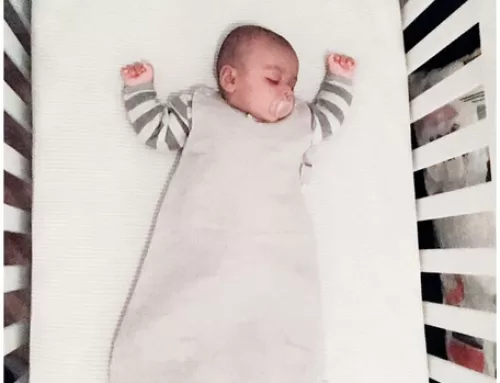Who can deliver ABA Therapy?
Who can deliver ABA Therapy?
A controversial question that must be addressed! To preserve the field of ABA and ensure that client’s are receiving the true quality of care they deserve. Today, our BCBA tackles this interesting topic…
“ABA is a specialized behavioral health treatment approach and most graduate or postgraduate training programs in psychology, counseling, social work, or other areas of clinical practice do not provide in-depth training in this discipline. Thus, an understanding of the credentialing process of Behavior Analysts by the Behavior Analyst Certification Board® (BACB®) can assist health plans and their subscribers in identifying those providers who meet the basic competencies to practice ABA.” (Pg. 6)
The practice of ABA Therapy has been regulated by the Behavior Analytic Certification Board since 1998, since which time they have certified over 165,201 Behavior Analysts and Technicians. BACB certificants are identified as qualified providers of ABA Therapy services however, there are many who practice ABA Therapy without a recognized BACB certification. It is important to clarify that whilst the BACB certifications do not restrict the practice of ABA Therapy, meaning that non-certified individuals may practice ABA Therapy, they do clarify those who have undergone extensive education and training within the field of Behavior Analysis and obtained certification, and those who have not. The information for any person who has a formal BACB certification can be found and verified through the BACB registry. This information is essential; specifically for parents/caregivers seeking ABA Therapy services from competent and qualified professionals.
Parents/caregivers should be sure to ask service providers questions regarding their certification and then follow-up themselves by verifying this information through the BACB. The minimum qualification that any ABA Therapy service provider should hold is a Registered Behavior Technician (RBT) Certification. It is important to understand there is a hierarchical system in place whereby RBT’s are not certified to work independently and must be supervised by either a Board Certified Assistant Behavior Analyst (BCaBA) or a Board Certified Behavior Analysts (BCBA). Likewise, BCaBA’s must be supervised by a BCBA. Therefore, when seeking services, parents/caregivers should understand the roles and responsibilities, along with the limitations, of each certificant in order to ensure that only qualified and competent professionals are delivering services.
The RBT provides certification to those holding a high school degree and upwards, who have completed a minimum of 40 hours direct training in the application of Behavior Analytic principles under the guidance of a BCaBA or BCBA. In addition, these individuals need to complete a competency exam whereby they demonstrate their ability to put in to practice the theoretical knowledge learned during their 40-hour training. Lastly, a formal 75 question exam is to be taken before gaining the RBT certification. Once certified, RBT’s work under the guidance and continual supervision of BCaBA’s or BCBA’s by directly implementing Behavior Analytic services.
RBT’s should not be responsible for creating or updating intervention programs or assessment plans. RBT’s must be supervised for a minimum of 5% of the hours that they spend implementing Behavior Analytic services, with the supervising BCaBA/BCBA spending at least half of this time observing the RBT directly implementing services. RBT’s are expected to complete the competency assessment on a yearly basis along with re-certification to ensure continual standards of practice.
Generally, clients receiving ABA Therapy services will be assigned a primary or lead RBT who will provide the majority of the clients direct therapy. The RBT will be the parents/caregivers most frequent point of contact and reference regarding therapy session progress, however each client will also be assigned a BCaBA/BCBA case manager who will be responsible for the indirect therapy services and supervision.
BCaBA’s are those individuals who have completed some formal undergraduate education in a discipline related to Behavior Analysis. This could include (but is not limited to) Education, Social Care, Psychology, or Counselling. BCaBA’s are expected to undertake coursework from an established institute that teaches the content detailed in the BACB’s Fourth Edition Task List. Depending on the chosen institute of study, and how quickly the individual masters the materials, this coursework can take anywhere from nine-months onwards. Individuals are also required to complete between 500-1000 hours of supervised practical work under the guidance of a BCBA. After the individual has completed the required coursework and practical experience, they are able to sit for the certification exam.
Once the BCaBA certification is obtained, on-going supervision from a BCBA must be in place. For the first 1000 hours post-certification, BCaBA’s must be supervised for a minimum of 5% of the total number of hours spent delivering Behavior Analytic services. Following on from this, a minimum of 2% of total hours must be supervised. BCaBA’s are expected to maintain their certification every two years. During this two-year period, it is the BCaBA’s responsibility to engage in academic and practical activities that continue to enhance their knowledge of the field of Behavior Analysis.
Typically, BCaBA’s will be responsible for training and supervising RBT’s, developing and monitoring behavior intervention plans, monitoring data collection, direct implantation of Behavior Analytic services, and training. The BCaBA’s responsibilities will vary depending on their experience and expertise in given areas.
BCBA’s are those individuals who have completed some formal graduate education in a discipline related to Behavior Analysis. This could include (but it not limited to) Education, Social Care, Psychology, or Counselling. BCBA’s are expected to undertake coursework from an established institute that teaches the content detailed in the BACB’s Fourth Edition Task List. Depending on the chosen institute of study, and how quickly the individual masters the materials, this coursework can take anywhere from 18 months onwards to complete. Individuals are also required to complete between 750-1500 hours of supervised practical work under the guidance of a BCBA. After an individual has completed the required coursework and experience, they are able to site for the certification exam.
Once the BCBA certification is obtained, BCBA’s are no longer required to obtain supervision. However, the BACB recommends that BCBA supervision is pursued in unfamiliar client cases. For example, when a lead BCBA only has experience with teenagers and is referred a child of four years old to work with, they can obtain supervision from a BCBA who is experienced in working with younger children. BCBA’s are also expected to maintain their certification every two years. During this period, it is the BCBA’s responsibility to engage in academic and practical activities that continue to enhance their knowledge of the field of Behavior Analysis.
Generally, BCBA’s will be responsible for training and supervising RBT’s, BCaBA’s and BCBA candidates, conducting developmental and behavioral assessments, developing and monitoring behavior intervention plans, monitoring data collection, ongoing program oversight, communicate with para-professionals and parents/caregivers, develop written reports, implement crisis management procedures, and trainings.




